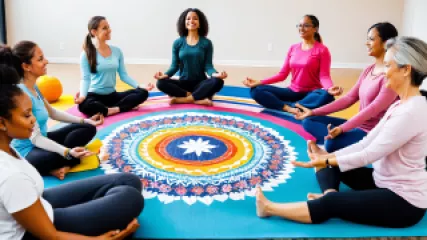How to Improve Mental Health Literacy: A Step-by-Step Guide
Welcome to the comprehensive guide on how to improve mental health literacy. In today's fast-paced and demanding world, it is essential to prioritize our mental well-being. Mental health literacy refers to having the knowledge, understanding, and skills necessary to promote positive mental health and effectively respond to mental health challenges. By enhancing our mental health literacy, we can better support ourselves and those around us, fostering a more compassionate and informed society.
Why is Mental Health Literacy Important?
Mental health literacy is crucial for several reasons. Firstly, it helps reduce the stigma surrounding mental health issues. By increasing awareness and understanding, we can challenge harmful stereotypes and promote a more inclusive environment. Additionally, improved mental health literacy enables early identification of mental health problems, leading to timely interventions and support. It empowers individuals to seek appropriate help and access available resources.
Moreover, mental health literacy equips us with the knowledge to support others who may be struggling. It allows us to provide empathy, guidance, and encouragement to those in need, fostering a sense of community and connection. Lastly, by enhancing our own mental health literacy, we can develop coping strategies and resilience to navigate life's challenges effectively.
Step 1: Educate Yourself
The first step in improving mental health literacy is to educate yourself about various mental health conditions, their symptoms, and treatment options. There are numerous reputable sources available, including books, websites, and online courses. Utilize these resources to gain a solid foundation of knowledge.
Start by understanding common mental health disorders such as anxiety, depression, bipolar disorder, and schizophrenia. Explore their signs and symptoms, risk factors, and available treatments. Familiarize yourself with the different types of therapy, medications, and alternative approaches used in mental healthcare.
Remember to critically evaluate the information you come across, ensuring it is from trustworthy sources such as mental health organizations, licensed professionals, or peer-reviewed journals.
Step 2: Promote Mental Health Awareness
Once you have acquired knowledge about mental health, the next step is to promote awareness within your community. This can be done through various means:
- Start conversations: Initiate open and honest discussions about mental health with family, friends, colleagues, and acquaintances. By sharing your knowledge and experiences, you can help break down the barriers surrounding mental health.
- Participate in campaigns: Join local or national mental health awareness campaigns to contribute to the larger movement. These campaigns raise public consciousness, challenge stigma, and advocate for improved mental healthcare services.
- Share resources: Utilize social media platforms or other channels to share reliable mental health resources, articles, and information. This helps disseminate accurate knowledge and encourages others to engage in mental health conversations.
Step 3: Develop Active Listening Skills
Active listening is a fundamental skill in supporting others and improving mental health literacy. It involves fully focusing on and understanding what someone is saying without judgment or interruption. To develop active listening skills:
- Be present: When someone approaches you to discuss their mental health, give them your undivided attention. Create a safe, non-judgmental space where they feel comfortable expressing themselves.
- Show empathy: Put yourself in their shoes and try to understand their emotions and experiences. Validate their feelings and let them know they are not alone.
- Avoid offering solutions: Instead of suggesting solutions right away, encourage them to explore their feelings further. Sometimes, people just need someone to listen and empathize.
Step 4: Support Mental Health Initiatives
Supporting mental health initiatives is an effective way to improve mental health literacy on a broader scale. Consider getting involved in the following ways:
- Volunteer: Dedicate your time to local mental health organizations or helplines. Volunteering can provide valuable insights into mental health challenges and help you develop practical skills.
- Advocate for change: Voice your support for improved mental health services and policies. Write to your local representatives, sign petitions, or join advocacy groups working towards positive change.
- Attend workshops and seminars: Participate in educational events and workshops focused on mental health. These gatherings often provide opportunities to learn from experts and engage in meaningful discussions.
Step 5: Prioritize Self-Care
Improving mental health literacy also involves taking care of your own well-being. Engaging in self-care practices can enhance your resilience and ability to support others. Consider these self-care strategies:
- Practice mindfulness: Incorporate mindfulness exercises such as meditation, deep breathing, or yoga into your daily routine. These activities promote relaxation and mental clarity.
- Maintain a healthy lifestyle: Ensure you are getting enough sleep, eating nutritious meals, and engaging in regular physical activity. Physical and mental well-being are closely connected.
- Set boundaries: Learn to say no when necessary and establish healthy boundaries in your relationships. Prioritize your own needs and allocate time for activities you enjoy.
- Seek support: Reach out to trusted friends, family, or mental health professionals if you are struggling. Asking for help is a sign of strength, and it is important to prioritize your own mental health.
Step 6: Continuous Learning and Growth
Mental health literacy is an ongoing process of learning and growth. Stay curious and open-minded, continuously seeking new knowledge and understanding. Keep up with the latest research and developments in the field of mental health.
Consider attending workshops, conferences, or webinars to expand your knowledge base. Engage in reflective practices such as journaling or self-assessment to evaluate your own growth and identify areas for improvement.
In conclusion, improving mental health literacy is a vital step towards fostering a more compassionate and supportive society. By educating ourselves, promoting awareness, developing active listening skills, supporting initiatives, prioritizing self-care, and embracing continuous learning, we can make a positive impact on our own well-being and that of others. Let us strive to boost mental health literacy and create a world where mental well-being is a shared priority.






